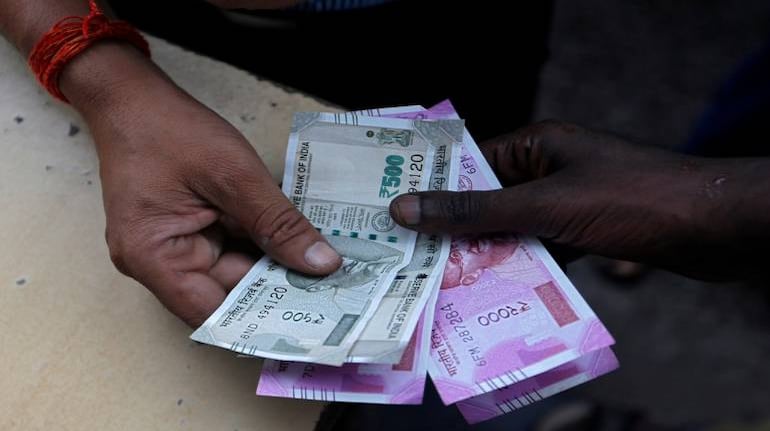Withdrawing more than Rs 20 lakh cash from bank would be impossible without a tax return
Banks will do a bit more than deal with your money. They will also step in to check if you have been filing your tax returns regularly. If you intend to withdraw more than Rs 20 lakh in cash during a year from a bank, then be ready for a longer waiting period. This is because the bank would have to verify your tax compliance. If you haven’t filed a tax return for the past three years, then you would also have to shell out a larger portion of your withdrawal amount as tax.
The Central Bank of Direct Taxes (CBDT) has just offered banks access to your income tax compliance records to ensure that you come under the scanner if you have never filed a tax return and yet are deal with a lot of cash. The data would have the permanent account number (PAN), name of the PAN holder (masked) and income tax return filing status for the last three assessment years.
TDS for cash withdrawal
So, if you haven’t filed the tax returns for assessment years 2017-18, 2018-19 and 2019-20 and withdraw more than Rs 20 lakh per bank annually, then 2 per cent of the withdrawn amount is collected by bank or post-office as tax deduction at source (TDS). This TDS increases to 5 per cent if the amount is more than Rs 1 crore and tax returns haven’t been filed..
“This facility would be necessary for enabling banks to comply with Section 194N. Since the section is more stringent for non-filers, it is necessary for a bank to know if a person withdraws cash in excess of the limits in the section and whether he has filed his returns for the earlier years or not,” says Ameet Patel, partner at Manohar Chowdhry & Associates.
To fix the loophole of tax evasion, the taxman has decided to give banks more power for tracking evaders at the cash transaction level by sharing tax compliance records. CBDT has instructed banks that they use the application programming interface-based exchange to automate and integrate this process of matching the tax records with the core banking solution and also document and implement information security policies.
Lowering the threshold
Earlier during the year, the Finance ministry had reduced the threshold limit for cash withdrawals without TDS to Rs 20 lakh from Rs 1 crore, starting July 1, 2020. Also, deposits of more than Rs 25 lakh in savings bank accounts and in excess of Rs 50 lakh in current accounts too would be reported as high-value transactions as mentioned by the Ministry of Finance in a tweet on August 13, 2020.
“Currently all bank accounts do not have PAN records and those who are not filing tax returns are finding solutions to evade taxes. So, in the new system, once you get caught with a 5 per cent TDS, you will be under the scanner and then the tax department will send you a notice and follow up,” adds Patel.
Ashwin Parekh, managing partner at Ashvin Parekh Advisory Services says, “I think it is a very good move as in most progressive jurisdiction in the world, there is a common linkage in income tax records, and everything has to have the social security number for the government to have access to data.”
So, even if you filed returns for one of the past three years, you would have to pay the higher TDS rate. Compliance too could be called for. Sudhir Kaushik, co-founder of taxspanner.com, says, “Data analysis and tax evasion are being aimed at through this move. All efforts are to track people who are evading taxes and check cash generation. Compliance will increase such tax evaders. Late returns with penalty would have to be filed by them.”
The move, however, throws open another area of data privacy and misuse of tax records. “This facility is not a problem as long as the only information given to the bank is whether the concerned person has filed the returns or not. As long as no other data is given out, tax payers should not worry about loss of privacy,” says Patel.
Currently the Central Board of Direct taxes has mentioned that the records would be shared with scheduled commercial banks. It couldn’t be verified whether the tax records would be shared with post-offices, co-operative banks or regional rural banks.
Parekh, however, foresees a bigger connection with transactions and the future of lending, “Next move is to have uniform approach to data-sharing as the RBI is collecting exposure data from all the banks at the moment. Going forward they would increase the vigilance. Siphoning of funds happened because of that data privacy. Some borrowed from the system for one reason and used the funds elsewhere; this is what needs to be controlled.”







